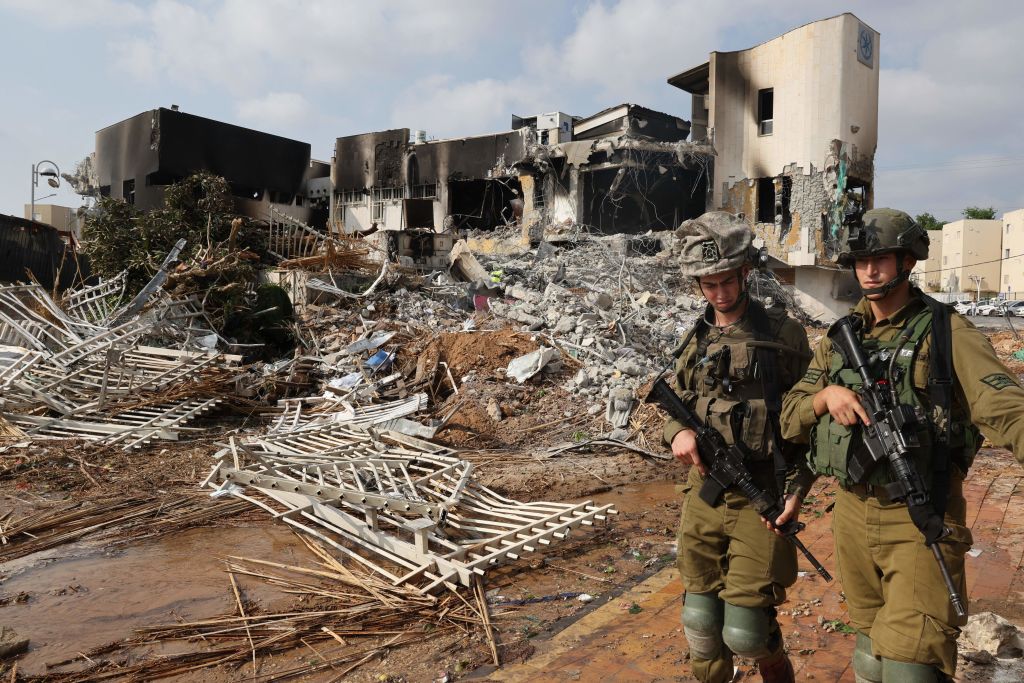- Tuesday, April 22, 2025
The Jordanian-drafted resolution called for an immediate humanitarian truce in the Israel-Hamas conflict and unhindered humanitarian access in the Gaza strip.

By: Shubham Ghosh
TERRORISM is a “malignancy” and knows no borders, nationality or race and the world should not buy into any justification of terror acts, India has told the United Nations (UN) General Assembly as it abstained on a resolution on the Israel-Hamas conflict.
India on Friday (27) abstained in the UN General Assembly on a Jordanian-drafted resolution titled ‘Protection of civilians and upholding legal and humanitarian obligations’ that called for an immediate humanitarian truce in the Israel-Hamas conflict and unhindered humanitarian access in the Gaza strip.
The 193-member General Assembly adopted the resolution that called for an immediate, durable and sustained humanitarian truce leading to a cessation of hostilities.
The resolution, which garnered 121 votes in favour, 44 abstentions and 14 member states voting against it, also demanded the immediate, continuous, sufficient and unhindered provision of essential goods and services to civilians throughout the Gaza Strip.
India’s deputy permanent representative to the UN Ambassador Yojna Patel, in Explanation of Vote at the world body said in a world where differences and disputes should be resolved by dialogue, this august body should be deeply concerned at recourse to violence.
“That too, when it happens on a scale and intensity that is an affront to basic human values,” Patel said. Patel said that violence as a means to achieve political objectives damages indiscriminately and does not pave the way for any durable solutions.
Describing the terror attacks in Israel on October 7 as shocking, Patel said they deserve condemnation. India’s explanation of the vote did not mention Hamas.
“Terrorism is a malignancy and knows no borders, nationality or race. The world should not buy into any justification of terror acts. Let us keep aside differences, unite and adopt a zero-tolerance approach to terrorism,” she said.
India expressed hope that the deliberations of the General Assembly will “send a clear message against terror and violence and expand prospects for diplomacy and dialogue while addressing the humanitarian crisis that confronts us.”
Patel said India is “deeply concerned” at the deteriorating security situation and astounding loss of civilian lives in the ongoing conflict. “The escalation of hostilities in the region will only exacerbate the humanitarian crisis. It is necessary for all parties to display the utmost responsibility,” she said. India also called for the “immediate and unconditional release” of the hostages.
Earlier, Iraq had abstained on the resolution but later changed its vote to a yes citing “a technical problem” at the time of voting.
Countries voting against the resolution included Israel and the US.
China, France and Russia voted in favour of the resolution while Canada, Germany, Japan, Ukraine and the UK abstained.
The resolution called for immediate, full, sustained, safe and unhindered humanitarian access for the United Nations Relief and Works Agency for Palestine Refugees in the Near East and other United Nations humanitarian agencies and their implementing partners, the International Committee of the Red Cross and all other humanitarian organisations upholding humanitarian principles and delivering urgent assistance to civilians in the Gaza Strip.
It encourages the establishment of humanitarian corridors and other initiatives to facilitate the delivery of humanitarian aid to civilians and welcomes efforts on this. Patel stressed that casualties in the ongoing conflict in Gaza are a telling, serious and continuing concern and it is civilians, especially women and children, who are paying with their lives.
“This humanitarian crisis needs to be addressed,” Patel said, welcoming the international community’s de-escalation efforts and delivery of humanitarian assistance to the people of Gaza. She noted that India too has contributed to this effort. India has sent 38 tons of humanitarian goods, including medicines and equipment to the people of Palestine. Patel reiterated that India has always supported a negotiated two-state solution to the Israel-Palestine issue, leading to the establishment of a sovereign, independent and viable state of Palestine, living within secure and recognised borders, side by side in peace with Israel.
(PTI)